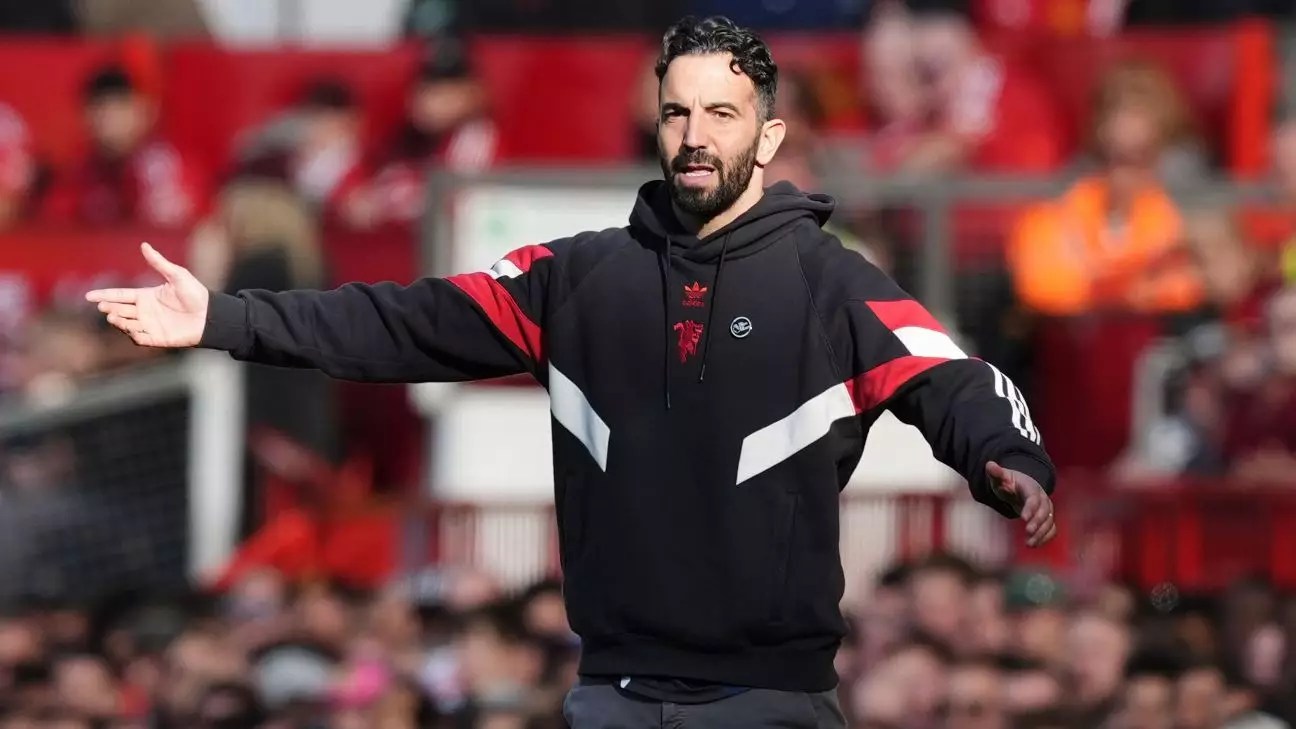The anticipated Manchester derby this past Sunday was met with disappointment by fans and pundits alike, culminating in a goalless draw that felt less like a fierce rivalry and more like a cautious sparring session. Ruben Amorim’s response to Gary Neville’s critical analysis highlights the nuances of contemporary football where context plays a pivotal role in interpreting team performances. In a season marked by underwhelming results for Manchester United and a struggling Manchester City, the expectation of thrilling football seems misaligned with the realities on the pitch.
Amorim suggested that rather than falling into a trap of excessive playmaking tactics, one must recognize that when clubs are grappling with their own challenges—such as United’s historically poor season and City’s search for form—what emerges is a reluctant, risk-averse style of play. The stakes felt high in this match, leading both sides to adopt a conservative approach, weighing potential mistakes against the desire to control the game.
The Price of Perfection: Risk Aversion in Modern Football
Neville’s critique of the match underscores a growing concern in modern football: the fear of making mistakes has become a dominant theme, smothering the creativity that once defined clashes like the Manchester derby. His assertion that players now seem petrified to take risks is not unfounded. Every misplaced pass and failed dribble is scrutinized to the point where players are hamstrung by an urgent need to maintain shape rather than express themselves.
This transformation is alarming; it strips matches of spontaneity. When the pulse of the game slows, as it did during this derby, the spectators—who crave excitement and dynamism—are left feeling cheated. This shift resonates beyond Sunday; it reflects a broader trend in the Premier League, where even teams with illustrious histories prioritize results over entertaining football, resulting in a more homogenized and predictable product.
Reflections on Rivalry: A Shift in Expectations
Amorim’s arguments remind us that rivalry dynamics have changed, particularly in the context of such teams. Where players once jostled for dominance driven by stakes—whether securing titles or clinching Champions League positions—now they often approach each fixture with an eye on avoiding negative repercussions. This shift raises questions about how we define greatness in football. Are we witnessing the evolution of a sport where strategy overpowers flair, or simply a phase influenced by economic and competitive pressures?
As pundits like Neville express concern over the quality of football, one might consider that the performance on display emanates more from the mental state of the players than their skill levels. The fallout of this derby could serve as a cautionary tale for clubs caught in cycles of performance anxiety, leading teams to sideline the excitement that once drove their fan engagement.
The upcoming fixtures for both Manchester clubs offer opportunities for redemption, but the inherent pressure could perpetuate the status quo. Ultimately, the essence of football lies in its unpredictability—a quality that must be revived if we want to witness not just the rivalry of the Manchester clubs, but the magnificent spectacle that the sport can still offer.


Leave a Reply